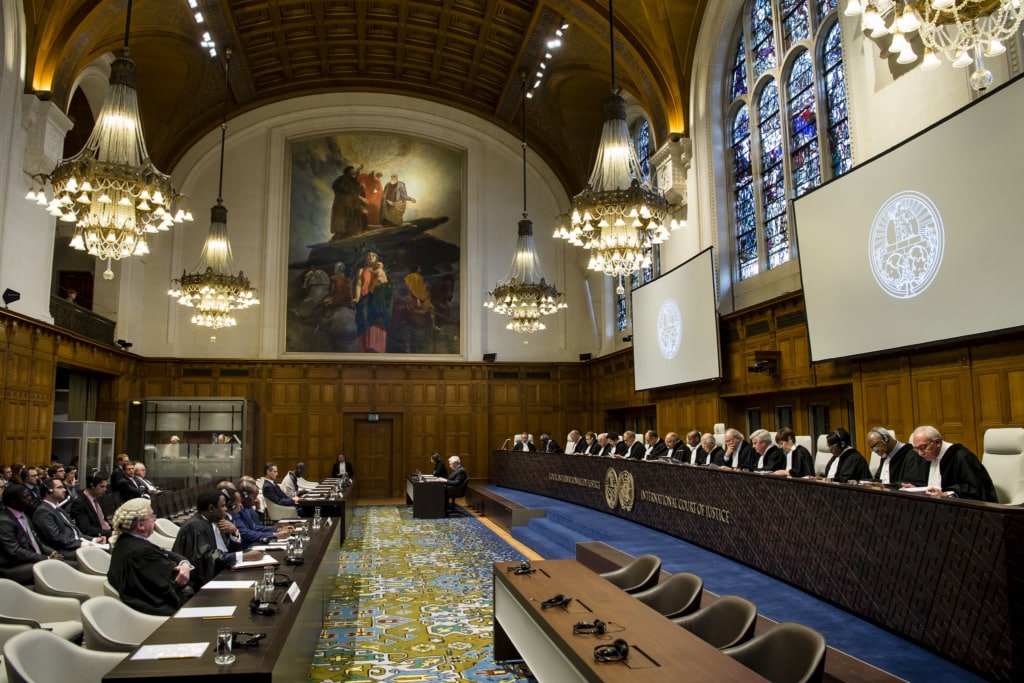Second Circuit Hears Halkbank Oral Argument
On February 28, 2024, the Second Circuit heard oral argument in United States v. Turkiye Halk Bankasi A.S. From the judges’ questions—which admittedly came almost exclusively from Judge Bianco—the panel seems likely to hold that Halkbank, a Turkish state-owned bank, is not immune under federal common law from criminal prosecution for violating U.S. sanctions on Iran. That…
Continue ReadingWhat Does Customary International Law Say About Halkbank’s Immunity?
Tomorrow, the Second Circuit will hear argument in United States v. Turkiye Halk Bankasi A.S. to consider whether Halkbank, a Turkish state-owned bank (but not its central bank), is immune from criminal prosecution for violating U.S. sanctions on Iran. Halkbank claimed immunity under both the Foreign Sovereign Immunities Act (FSIA) and federal common law. The U.S….
Continue ReadingU.S. Brief in Halkbank Abandons Customary International Law in Immunity Cases
In Turkiye Halk Bankasi A.S. v. United States (Halkbank), the Supreme Court held that the Foreign Sovereign Immunities Act (FSIA) does not apply to criminal proceedings. The Court remanded Halkbank’s separate claim of common law immunity to the Second Circuit for reconsideration. On November 20, 2023, after two extensions, the United States filed its brief on remand. The U.S….
Continue ReadingFurther Thoughts About Terrorism Exceptions and State Immunity
As regular readers know, Iran has sued Canada at the International Court of Justice (ICJ), arguing that the terrorism exceptions in Canada’s State Immunities Act (SIA) violate customary international law. The United States also has terrorism exceptions in its Foreign Sovereign Immunities Act (FSIA) for actions against state sponsors of terrorism and for actions based on international terrorism in the…
Continue ReadingGovernmental and Non-Governmental Acts in Terrorism Exceptions to Sovereign Immunity
The Islamic Republic of Iran (“Iran”) brought proceedings in the International Court of Justice (“ICJ”) against Canada on June 27, 2023, alleging that Section 6.1(1) of Canada’s State Immunity Act (SIA), its “terrorism exception,” violates Iran’s sovereign immunities from jurisdiction and enforcement under customary international law. Section 6.1(1) creates an exception to the jurisdictional immunity…
Continue ReadingWhy Terrorism Exceptions to State Immunity Do Not Violate International Law
[Editor’s Note: This post also appears at Just Security.] On June 27, 2023, Iran sued Canada at the International Court of Justice (ICJ), arguing that the terrorism exceptions in Canada’s State Immunities Act (SIA) violate customary international law. As Professor Maryam Jamshidi noted at Just Security, it seems that the main target of Iran’s action…
Continue ReadingA Primer on Foreign Sovereign Immunity
The immunity of states from the jurisdiction of foreign domestic courts is a long-standing and mostly uncontroversial principle of customary international law. The International Court of Justice has described foreign sovereign immunity as a procedural doctrine of international law, one that “derives from the principle of sovereign equality of the States.” As a practical matter,…
Continue ReadingCentral Bank Immunity, Afghanistan, and Judgments Against the Taliban
International law and U.S. foreign policy provide powerful reasons to require clearer direction from the political branches before ordering the turnover of Afghan central bank assets to U.S. judgment creditors. [This post also appears on Lawfare]. Afghan central bank assets in the United States were frozen by President Biden following the Taliban’s takeover of the…
Continue ReadingA Century of Changes in Extraterritoriality
This post is a lightly edited version of a talk given virtually on November 26, 2022, at the “International Symposium on Accelerating Changes Unseen in a Century and the Development of International Law” organized by the Chinese Academy of Social Sciences, Institute of International Law. I am pleased to be with you today to discuss…
Continue ReadingThe Supreme Court Takes Up Sovereign Immunity from Criminal Prosecutions
On the first day of the October 2022 Term, the Supreme Court granted certiorari in Türkiye Halk Bankasi A.S. v. United States. The case, put simply, asks whether the U.S. government can bring criminal prosecutions against foreign companies owned by foreign sovereigns. The United States has charged Halkbank, in which Turkey’s sovereign wealth fund has…
Continue Reading- « Previous
- 1
- 2
- 3
- Next »







